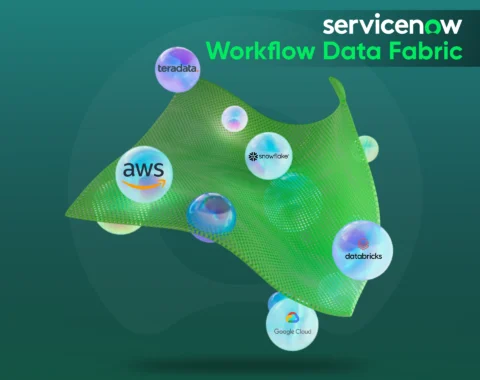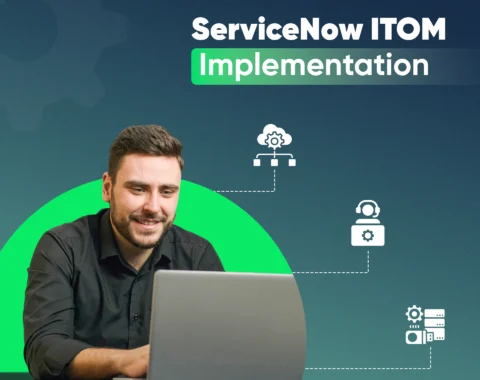Create and manage business continuity plans aligned with industry standards and best practices and tailor them to meet their specific needs with Business Continuity Management.

Business Continuity Management
- Business Continuity Management (BCM) is a solution designed to help organizations plan for and respond to disruptive events that may impact their operations.
- Provides a centralized platform for business continuity planning, risk assessment, crisis management, and disaster recovery.
- Enables teams to identify potential risks, assess their impact on business operations, and track the progress of response and recovery efforts in real-time.
- Provides powerful analytics and reporting capabilities to measure preparedness and identify areas for improvement. Stay ahead of potential disruptions and minimize the impact on their operations.
Business Continuity Management Framework
-
Business Impact Analysis (BIA)
Process to identify and analyze the potential disruption impacts on critical business processes, systems, and resources. It helps to prioritize the response and recovery efforts.
-
Business Continuity Plan (BCP)
A documented plan to outline the required process for critical business functions during & after a disruption. It includes roles & responsibilities data, communication protocols, etc.
-
Crisis Management Plan (CMP)
Outlines the procedures and protocols for managing a crisis, including the incident management team, communication protocols, and escalation procedures activation.
-
Disaster Recovery Plan (DRP)
Outlines the procedures & protocols for restoring IT systems & infrastructure during disruption. It includes data on recovery objectives, timeframes, backup, and recovery.
-
Testing and Training
Regular activities ensure that the BCM framework is adequate. Also, it helps in preparing the key personnel to execute their roles and responsibilities during a disruption.
-
Continuous Improvement
Review and update plans based on changing business needs, emerging threats, and feedback from testing & incidents. It ensures the BCM framework remains relevant over time.

Business Continuity Management Benefits
Enhanced Resilience
Assess risks and vulnerabilities, which helps to identify potential disruptions and develop effective strategies to mitigate them. It enhances resilience and continues to operate even in the face of unexpected events.
Streamlined Processes
Provides a centralized platform for managing all aspects of business continuity planning. It helps to streamline processes and ensure that all stakeholders are aligned in their approach to business continuity.
Better Business Performance
Minimize the impact of disruptions on their operations and customers. By being better prepared to handle troubles, maintain business continuity, and ensure products and services delivery effectively.
Increased Visibility
Provides real-time visibility into the status of business continuity plans, enabling organizations to track progress, identify gaps, and make informed decisions about how to respond to disruptions.
Business Continuity Management Features
Risk Assessment
Identify potential threats and assess the likelihood and impact. It helps organizations prioritize their efforts and develop effective strategies to mitigate risks.
Business Impact Analysis
Assess the potential impact of disruptions on operations, customers, and stakeholders. It helps prioritize response efforts and protect critical functions and processes.
Plan Development
Address the specific risks and needs. It includes strategies for maintaining critical functions, communications protocols, & processes for responding to different disruptions.
Testing and Simulation
Validate the effectiveness of business continuity plans. It helps organizations identify weaknesses and gaps in their plans and improve before a real disruption occurs.
Real-Time Monitoring
Provide real-time monitoring of the status of business continuity plans and enables organizations to track progress and identify any issues that need to be addressed.
Reporting and Analytics
Track and analyze the continuity performance over time. It helps find trends, measure the effectiveness of plans, and make data-driven decisions to improve preparedness.
ServiceNow Business Continuity Management Examples
Business Impact Analysis (BIA)
Conduct a comprehensive BIA to identify critical business processes, systems, and resources. They analyze the potential disruption impact on these areas and use this information to prioritize their response and recovery efforts.
Crisis Management Plan (CMP)
Develops a Crisis Management Plan (CMP) that outlines the procedures and protocols for managing a crisis situation, including activating the incident management team, communication protocols, and escalation procedures.
Testing and Training
Conducts regular testing and training activities to prepare personnel to execute their roles and responsibilities during a disruption. It includes tabletop exercises, simulation testing, and live testing events.
Business Continuity Plan (BCP)
Develop detailed Business Continuity Plans (BCPs) for each critical business process. The BCPs include information on recovery strategies, roles and responsibilities, communication protocols, and recovery time objectives.
Disaster Recovery Plan (DRP)
Develops a comprehensive Disaster Recovery Plan (DRP) that includes information on recovery objectives, recovery timeframes, and backup and recovery procedures for critical IT systems and infrastructure.
Incident Management
Quickly respond to and manage incidents, enabling real-time collaboration and communication among the crisis & incident management team or other stakeholders. Allow progress monitoring and make required adjustments.
Business Continuity Management Roles
Business Continuity Manager (BCM)
Responsible for planning, implementing, & maintaining the BCM framework. It includes business continuity plans, coordinating response & recovery efforts, and conducting training and testing.
Business Process Owners (BPOs)
Responsible for identifying critical business processes and resources and providing input into the BIA process. Also, work with the BCM to develop and maintain business continuity plans.
Crisis Management Team (CMT)
Responsible for managing the initial response to a crisis, including activating the incident management team, coordinating communication protocols, and escalating issues as necessary.
Incident Management Team (IMT)
Responsible for managing the response & recovery efforts during a disruption. It includes coordinating recovery activities, communicating with stakeholders, and documenting recovery efforts.
IT Disaster Recovery Coordinator (ITDRC)
Responsible for developing and maintaining the IT Disaster Recovery Plan (DRP) and coordinating IT recovery efforts during a disruption, working with IMT to restore IT systems and infrastructure.
Training and Testing Coordinator
Responsible for developing, training, & testing activities to prepare personnel to execute their duty during a disruption. They create realistic scenarios and test the effectiveness of the BCM.
How Can Aelum Consulting Help with ServiceNow Business Continuity Management?
Implementation
We can help organizations implement the ServiceNow BCM solution, including configuring the system to meet the organization’s specific needs and requirements.
Process Review and Improvement
We can help organizations review and improve their business continuity processes. It includes conducting BIA and Risk Assessment activities, BCPs, and DRPs.
Customization
We can help organizations customize the BCM solution to meet their specific needs and requirements, like developing custom workflows, forms, and reports.
Integration
We can help organizations integrate the BCM solution with other systems and platforms, including ITSM, Incident Management, and Change Management systems.
Maintenance and Support
We can provide organizations with ongoing maintenance and support services for the BCM solution, including system upgrades, bug fixes, and technical support.
Compliance
We can help organizations ensure their BCM solution is compliant with relevant regulatory requirements, industry standards, & best practices avoiding penalties & fines.
Business Continuity Plan Development
Conduct a Business Impact Analysis
Identify the critical functions, processes, and potential impacts of disruptions. It should include input from key stakeholders across the organization.
Identify and Prioritize Risks
Identify and prioritize the potential risks to the organization. It may include natural disasters, cyber-attacks, supply chain disruptions, & other disruptions.
Develop Response Strategies
Outline the steps to minimize the disruption impact, protect critical functions and processes, and maintain operations throughout the organization.
Develop Communication Plans
Update all stakeholders during a disruption, including clear communication protocols with employees, customers, vendors, and other key stakeholders.
Test and Refine the Plan
Ensure BCP is compelling and up-to-date. It may include tabletop exercises, simulations, and live tests. Refine the plan based on these tests’ results.
Implement and Maintain the Plan
Review and update BCP regularly. It includes assigning responsibilities and roles, establishing a command structure, and training all employees.
Frequently Asked Questions
ServiceNow BCM is vital for organizations because it helps them prepare for and respond to possible disruptions impacting business operations, revenue, and reputation.
With ServiceNow BCM, organizations can
- Assess risks
- Develop response strategies
- Test and refine their plans to ensure preparedness
- Get a centralized platform for managing business continuity planning
- Improve communication and collaboration among stakeholders
- Ensure everyone is aligned in their approach to business continuity
- Minimize the impact of disruptions
- Reduce downtime
- Ensure critical functions and processes continue to operate during a crisis.
Overall, ServiceNow BCM is a critical tool for helping organizations maintain business resilience and continuity in the face of potential disruptions.
ServiceNow BCM provides organizations with the tools and capabilities to assess potential risks, identify critical functions and processes, develop response strategies, and test and refine their plans to ensure preparedness.
ServiceNow BCM provides a centralized platform for managing business continuity planning, providing all stakeholders access to the same information and can work together more effectively. It helps to reduce confusion, minimize delays, and ensure everyone is aligned in their approach to business continuity.
Yes, Aelum Consulting can integrate ServiceNow BCM with other ServiceNow applications as well as third-party systems to provide a more holistic view of an organization’s operations and risks.
Organizations should review and update their business continuity plan annually or when significant changes occur. Regular testing and simulation exercises using ServiceNow BCM can help identify any necessary updates or modifications.
Our Clients


































































